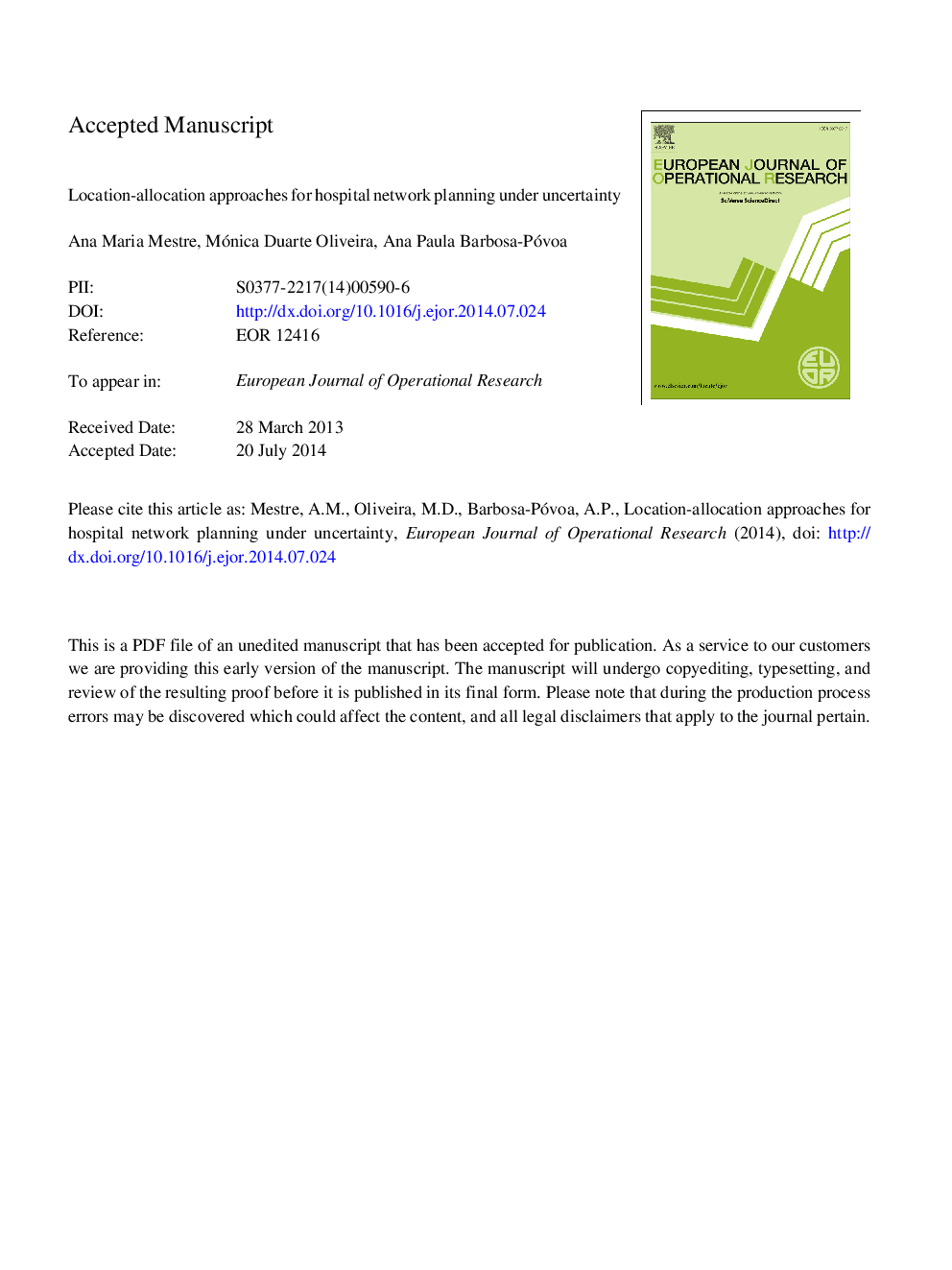| Article ID | Journal | Published Year | Pages | File Type |
|---|---|---|---|---|
| 6897061 | European Journal of Operational Research | 2015 | 36 Pages |
Abstract
This study proposes two location-allocation models for handling uncertainty in the strategic planning of hospital networks. The models aim to inform how the hospital networking system may be (re)organized when the decision maker seeks to improve geographical access while minimizing costs. Key features relevant in the design of hospital networks, such as hospitals being multiservice providers operating within a hierarchical structure, are modelled throughout a planning horizon in which network changes may occur. The models hold different assumptions regarding decisions that have to be taken without full information on uncertain parameters and on the recourse decisions which will be made once uncertainty is disclosed. While the first model is in line with previous literature and considers location as first-stage decisions, the second model considers location and allocation as first-stage decisions. Uncertainty associated with demand is modelled through a set of discrete scenarios that illustrate future possible realizations. Both models are applied to a case study based on the Portuguese National Health Service. The results illustrate the information that can be obtained with each model, how models can assist health care planners, and what are the consequences of different choices on the decisions to be taken without complete information. The second model has shown to be advantageous on grounds that location-allocation decisions are not scenario dependent, and it appears to be more flexible to handle the planning problem at hand.
Related Topics
Physical Sciences and Engineering
Computer Science
Computer Science (General)
Authors
Ana Maria Mestre, Mónica Duarte Oliveira, Ana Paula Barbosa-Póvoa,
